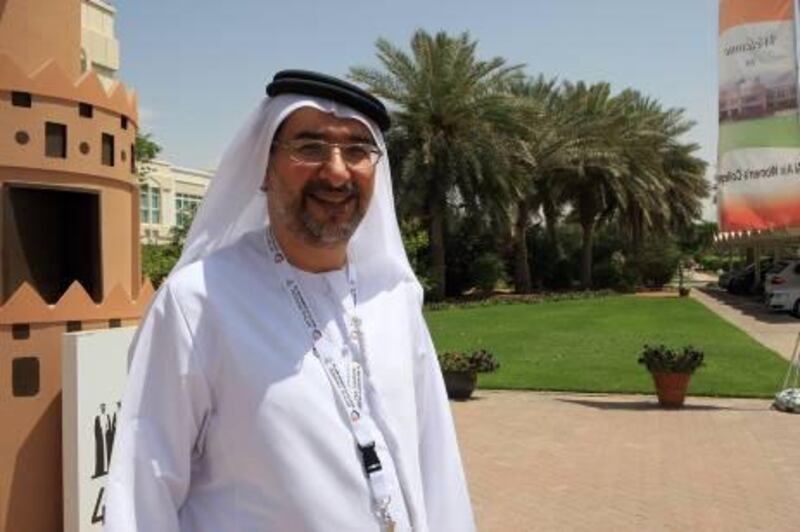DUBAI // A culture of mistrust between educators at government schools and the authority is slowing down the implementation of education reform in the capital, according to teachers and principals.
Principals complain that they do not have enough authority over their own schools, and teachers say they have to follow directions from the Abu Dhabi Education Council (Adec) without being consulted.
"We are told that a good leader has certain qualities and we need to work on them," said Mohammed Amin Al Zarouni, the principal of the Sultan bin Zayed School in Al Ain.
"We have the title of a leader, but we do not have the position."
He said they have no power to make independent decisions about the welfare of their schools.
"We need authority to manage and lead our finances, development and hire our own staff," he said. "Right now, I do not know my budget for the year to come. Decisions are just made by Adec and communicated.
"Most decisions and control in the Arab world has been in the centre, despite our religion saying that everyone should be responsible. Many are even afraid to speak up. It is not easy to change that culture."
Educators at the Ninth National Education Conference held at Al Ain Women's College yesterday said a top-down approach in the education system needed to be replaced by a leadership philosophy where everyone would feel responsible for change.
Dame Gealdine Keegan, who spoke about her efforts to turn around a poor-performing school in Northern Ireland, said a culture of leadership had to run through all levels of schools.
"Teachers, parents and students need to take part in the development policies at the school to gain results," she said.
In a teacher satisfaction survey conducted in government schools by Adec in 2010, about 900 of the 1,459 respondents said they had very little or no say in establishing the curriculum and instructional programme.
The curriculum, resources and instruction method are all determined by Adec.
Dr Matthew Glen, the director of curriculum development at Adec, said feedback from those on the ground was essential to making the initiatives work.
"When principals assess their teachers, they are often marked down for things like teaching children in groups," he said. "They haven't fully understood the model developed by Adec. They do not believe the teacher to be bringing in new ideas and teaching methods."
But the education authority would gradually decrease its role in time and more control would be given to schools, he said, adding that the transfer of such "western concepts" of leadership had been historically problematic in Arab countries.
Eman El Kaleh, the senior student success coordinator at Zayed University, said that Islamic ethics and leadership should be the driving force at schools. "Islam says leadership is amanah [trust]," she said.
"It's a responsibility rather than a privilege. If western theories of work ethics can be linked to Islamic beliefs we will get similar results of building community, inspiration, foresight and patience."
Dr Glen admitted that "too much imposed reform is detrimental to the leadership of a school, without giving them enough support".
He said that many local teachers were still resistant to change.
"They feel threatened and are not open to criticism," he said. "We have several experts that have come in from all over the world to help with reforming the government education system but unless there is a change in mindset it will not work."
Mariam Al Yabhoni, the principal at Al Zayediyyah School in Al Ain, said the mindset has begun to shift. She said all the day-to-day responsibility used to fall on her "but that is slowly changing".
"Now it's more about teamwork among the staff and we do see a change in the way pupils work as well.
"We have a mothers' council who come in and discuss important issues and I have delegated more work to our vice principals, too."






